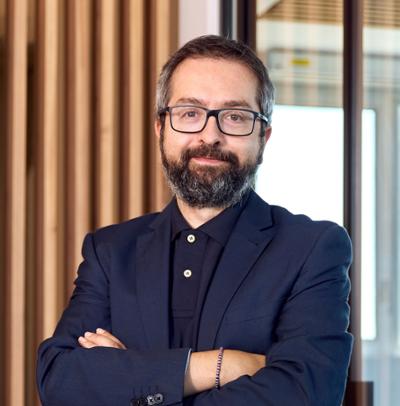

Gaspar Martín (ACTECIR): "The sector needs a rapid response to achieve decarbonisation"
Gaspar Martín, president of the Catalan Association of Energy, Air Conditioning and Refrigeration Technicians (ACTECIR) said in the following interview that this sector needs to make a rapid response to train and assimilate all the technological changes involved in the path towards decarbonisation. He added that the contribution of technicians must enable the various technologies defined in the regulations and directives to be applied and implemented in buildings in due time.
What are the main things needed by the energy, air conditioning and refrigeration sector for a successful energy and technology transition?
We believe that the main requirement for the sector to succeed in this transition is to be able to respond rapidly to be able to train and assimilate all the technological changes implied by the various directives and regulations that mark the path towards decarbonisation. In particular, the Energy Performance of Buildings Directive, EPBD, which greatly impacts the above sectors. It is clear that this effort will have to be focused on renewable technologies such as aerothermal heat pumps and photovoltaic systems.
Do you think it will be possible to achieve the decarbonisation targets set for 2030 and 2050 in the sector?
I think we agree that we need to decarbonise our society to ensure the sustainability of our planet. What may be more debatable is whether the deadlines that have been chosen, with a target date of 2050 for the achievement of the various goals, are realistic and achievable.
Achieving these aims may be more or less straightforward in terms of new construction, but I believe the challenge lies in decarbonising the existing stock of buildings. In the latter, actions on the surrounding environment may prove costly both from a technical and economic perspective, whilst the use of renewable equipment for air- conditioning and domestic hot water will not always be feasible. The definition of a legal framework for renewable gases (whether biomethane or green hydrogen) and the use of hybrid systems will also be key to achieving our environmental and energy efficiency goals. If we want to achieve our goals, we will have to rely on all available technologies.
What role do energy, air conditioning and refrigeration technicians play in achieving these goals?
The present and future scenario, which is complex and imbued with some uncertainty, particularly at a regulatory level, will require the experience, knowledge and judgement of well-trained technicians with a rapid capacity to adapt to change. The engineer’s role is thus key in order to be able to design both new buildings and to undertake the renovation of existing buildings in line with decarbonisation aims. Associations such as ACTECIR should try to help these professionals by providing training and useful information according to their needs.
How do these technicians help boost sustainability in the economy and society?
The basic role of technicians in meeting the decarbonisation targets that will help to achieve the sustainability of our planet has been discussed above. The contribution of these technicians must enable the various technologies defined in the applicable regulations and directives to be applied and implemented in due time in our buildings. And when I talk about technicians, I am not only referring to designers, but also to installers, who are a fundamental cog in the chain for the correct installation of these technologies in buildings. They serve as the link that must also help to convey all these technologies and their benefits to the end user. In order for everything to come to fruition, it is essential for end-users to become aware of the great challenge which lies before us, being sensitive to the importance of deploying technologies that aid decarbonisation.
Is there any other question you regard as relevant on this topic?
I would just like to take a look at a word that came up in a previous question: training. The whole challenge we are facing must be based on training in technologies that help to decarbonise society. This will require an additional effort by all of us. Good training will facilitate and enable us to succeed in our objectives. Here at ACTECIR, our future approach to training can be summarised as follows: we need to improve the courses that we already have and which work, but we also need to create new ones that are useful for the technicians who wish to come on board.





